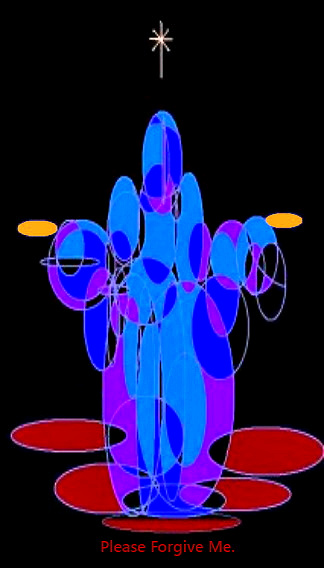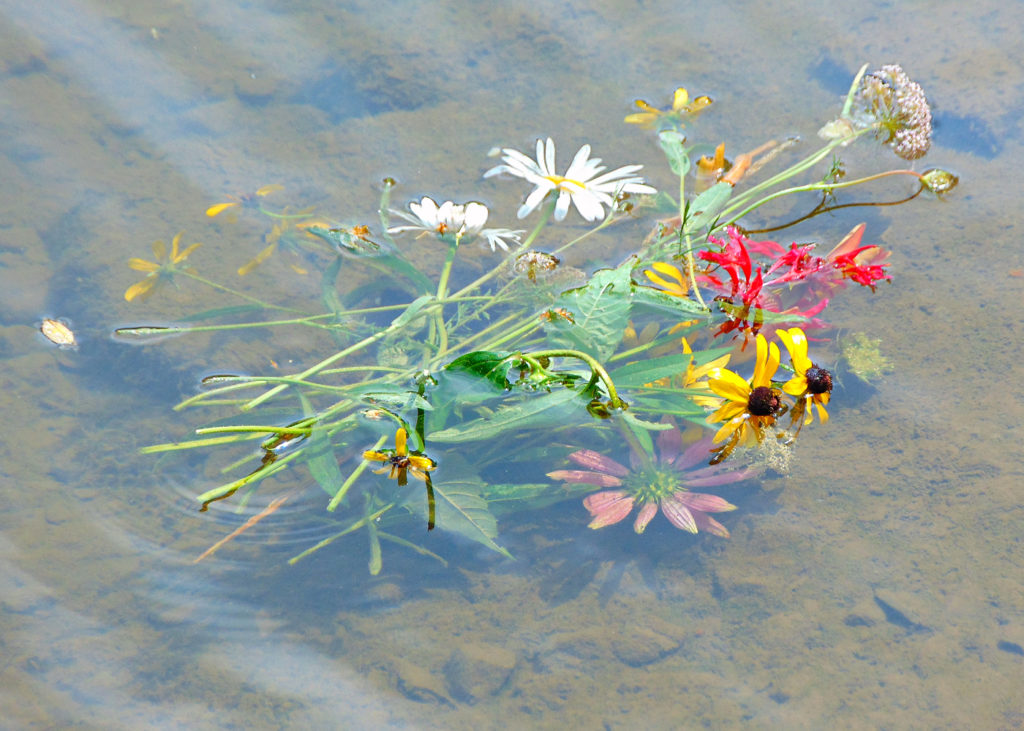
Last week, we looked at the ways we’re enriched when we apologize for our errors. “I’m sorry” is one of the four phrases that, when said from the heart, brings healing and restoration.
I’m sorry.
Please forgive me.
Thank you.
I love you.
One recent tradition refers to the repetition of the four phrases as “cleaning,” an expression that feels right on target after you get some experience in using them. Some people use the four phrases to clean a room, for example, neutralizing and transforming heavy-feeling energies into lighter ones, raising the vibrations of the space. But primarily, home is the best place to start–the home where the core You lives.
This week’s phrase, “Please forgive me,” naturally follows “I’m sorry.” Forgiveness is what we need in order to make amends, to put our mistakes behind us. It’s what we ask for when we recognize our short-sightedness, our lack of thought, our defiance or disregard of a known better way.
Who we are asking to forgive us is a matter of personal world-view. Some address their plea to what they think of as their higher self or their better self. Some silently address their request to the hearts and minds of everyone involved. Maybe you ask God, or Source, the Great Yes, the Monitor of Mysteries. Direct your request to whatever holds the most meaning for you.
At its center, forgiveness is an act of compassion. It’s not really about whatever is being forgiven, whatever thought or word or deed. It’s about the person who did or failed to do the better thing. Forgiveness isn’t an act of justice; it’s an act of benevolence. Justice deals with the wrong action and seeks to find a suitable means to compensate for it. Forgiveness deals with the person who erred.
What you’re really saying when you ask for forgiveness is, “Please don’t hold this against me. Please look beyond it and see the whole of me.” When I ask for forgiveness, it’s my recognition that I am not this mistake. I acknowledge that I made it; but it is not who I am.
Asking for forgiveness is actually an act of personal responsibility, a realization that I, myself, am in charge of how I’ll feel about this mistake I made. I restore myself to greater wholeness when I allow myself to be forgiven. To accept forgiveness is to adopt a radical acceptance of what is, the whole of what is, not just this one stain. It’s a decision to remember the greater context for this moment that brought discomfort or pain, and to remember that the context is vast, many-faceted and many-layered.
That’s not to say that we should condone our mistaken acts. Right and wrong and good and bad are real. One choice enlarges life; one depletes it. One choice makes me larger; the other makes me small. When I can face the fact that I made a lesser choice, I can feel my disappointment in myself. I can sincerely say, “I’m sorry,” and then I can ask for the balancing grace that comes with accepting forgiveness.
Not allowing myself to ask for forgiveness is an act of perverted pride, thinking my error is too great to deserve forgiveness. It’s an attempt at self-punishment, as if recognizing the error for what it is doesn’t deliver sufficient pain. It’s a kind of auto-immune disease of the ego. And all it takes to heal it is to allow yourself to say, “I’m sorry. Please forgive me.”
Forgiveness is an act of kindness, an act of love. It allows you to set the gritty, brittle hardness of resentment aside, to be free to see more generous possibilities.
Forgiveness heals. It lets you get past the injuries and errors and move on. It bestows enhanced compassion for the errors of others, for the injuries others cause. When I see cruelty or maliciousness in the world, I can say “I’m sorry,” on behalf of all mankind for the blindness that still besets us. I can say “Please forgive us,” and free myself to think, instead, of ways that I can bring more harmony into the world.
Forgiveness frees.
I’m sorry. Please forgive me. Thank you. I love you.
I’m sorry. Please forgive me. Thank you. I love you.
I’m sorry. Please forgive me. Thank you. I love you.
Powerful stuff.
Take it for a whirl.
Warmly,
Susan
Image by Susan K Minarik
